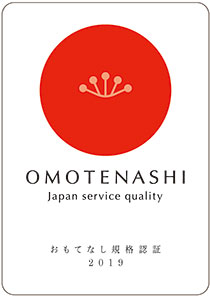Practice Writing by Journaling in Japanese! シンプル日記で新習慣をつけよう

Are you in the habit of writing? I recommend improving your Japanese by writing a journal or planner! By writing just a few simple lines you can learn useful phrases and vocabulary in Japanese which are relevant to you!
By writing a journal and having it corrected you are essentially creating your own learning resources!
Your Japanese will improve faster through both writing and speaking!
Writing in Japanese can be a daunting task, so start off slowly with just 3 lines (a day)! You’ll be surprised how even a simple sentence can be expressed in many different ways. I’ll give you synonyms and show you how to express yourself naturally in a way that actual Japanese people do.
自分の言葉で書く日記こそ、最高の教材です。
書くことで、話すこともどんどん上手になります。
まずは3行からはじめてみませんか?
(じぶんのことばでかくにっきこそ、さいこうのきょうざいです。かくことで、はなすこともどんどんじょうずになります。まずは3ぎょうからはじめてみませんか?)
Lesson Description
This Lesson is good for:
▷Being able to use Japanese properly in writing.
書くことでしっかり日本語を使えるようになる
(かくことでしっかりにほんごをつかえるようになる)
▷Mastering natural Japanese expressions by writing.
日本人がよく使う表現が身につく
(にほんじんがよくつかうひょうげんがみにつく)
▷Increasing vocabulary
語彙力を増やせる
(ごいりょくをふやせる)
▷Expressing yourself in your own way with confidence in Japanese.
自分らしい表現ができるようになる
(じぶんらしいひょうげんができるようになる)
What should I write?
【For example】
①Planning, to-do list etc…/行動記録(こうどうきろく)
朝起きてからの行動を記録します。
(あさおきてからのこうどうをきろくします)
②Journaling, diary, thoughts, ideas / 気持ちや感想 (きもちやかんそう)
生活や仕事で感じることや、ニュースや本、映画などの感想を記録します。
(せいかつやしごとでかんじることや、にゅーすやほん、えいがなどのかんそうをきろくします)
③Writing about your interests / 好きなことログ(すきなことろぐ)
食べることが好きな人は、料理、運動が好きな人は、運動の記録など。
(たべることがすきなひとは、りょうり、うんどうがすきなひとは、うんどうのきろくなど)
How will we study?
・Write a journal or something like in (①~③)and send it to me via Skype’s chat box before the lesson.
日記や上の①~③のようなことを書いて、レッスンの前にスカイプのチャットボックスに送ってください。
(にっきやうえの①~③のようなことをかいて、れっすんのまえにすかいぷのちゃっとぼっくすにおくってください)
・I’ll correct your writing so that it sounds natural in Japanese, as well as answer any questions you have during the lesson.
レッスンでは、あなたが書いたことを自然な日本語表現にしたり、質問に答えます。
(れっすんでは、あなたがかいたことをしぜんなにほんごひょうげんにしたり、しつもんにこたえます)
***********************************************
【Collection Example:添削例(てんさくれい)】
<Example of a student’s writing>
×月×日
昨日、予防接種の副作用で、39.5度まで熱があがって、一日休みしました。
CHECK1:お休みしました or 休みました
(動詞)休み+ます/たい
(名詞)お休み+します
POINT:39.5度=39度5分(さんじゅうくど/ごぶ)ともいいます
昨夜、ようやく平熱36.8度に戻ったが、普段にから体温が低い私には36.8も熱っぽくて、体が怠かったです。
CHECK2:普段にから→普段から(natural Japanese)普段から→もともと/いつも
POINT:ようやく=やっと (finally)
***********************************************
Writing about ‘the everyday’ is a practical way to see what words and phrases you use often, and you can learn how to say them in Japanese. Being able to communicate your thoughts and feelings is important for building connections with Japanese people. Let your personality shine!
日常(普段の生活など)を文字にするのは、私たちがよく使う単語やフレーズがたくさん出てくるので使える言葉が多く、とても勉強になります。繰り返し書くうちに、あなたがよく使う言葉や必要な言葉もわかってくるでしょう。たくさんある日本語表現の中から、あなたにとってベストなものを選んでいきましょう!
(にちじょう/ふだんのせいかつなど をもじにするのは、わたしたちがよくつかうたんごやフレーズがたくさんでてくるのでつかえることばがおおく、とてもべんきょうになります。くりかえしかくうちに、あなたがよくつかうことばやひつようなことばもわかってくるでしょう。たくさんあるにほんごひょうげんのなかから、あなたにとってべすとなものをえらんでいきましょう!)
I’m looking forward to seeing you soon!
お待ちしています!(おまちしています!)
Your teacher:AIKO(Professional Editor & Writer for magazines/books)
Teacher AIKO's schedule
| Sun | Mon | Tue | Wen | Thu | Fri | Sat |
|---|---|---|---|---|---|---|
| 30 | 31 | 1 | 2 | 3 | 4 | 5 |
| 6 | 7 | 8 | 9 | 10 | 11 | 12 |
| 13 | 14 | 15 | 16 | 17 | 18 | 19 |
| 20 | 21 | 22 | 23 | 24 | 25 | 26 |
| 27 | 28 | 29 | 30 | 1 | 2 | 3 |
| 4 | 5 | 6 | 7 | 8 | 9 | 10 |
| 11 | 12 | 13 | 14 | 15 | 16 | 17 |
| Sun | Mon | Tue | Wed | Thu | Fri | Sat |
 mark shows that the booking slot is open. Please click the
mark shows that the booking slot is open. Please click the  mark for booking.
mark for booking.- 24-hour notation







